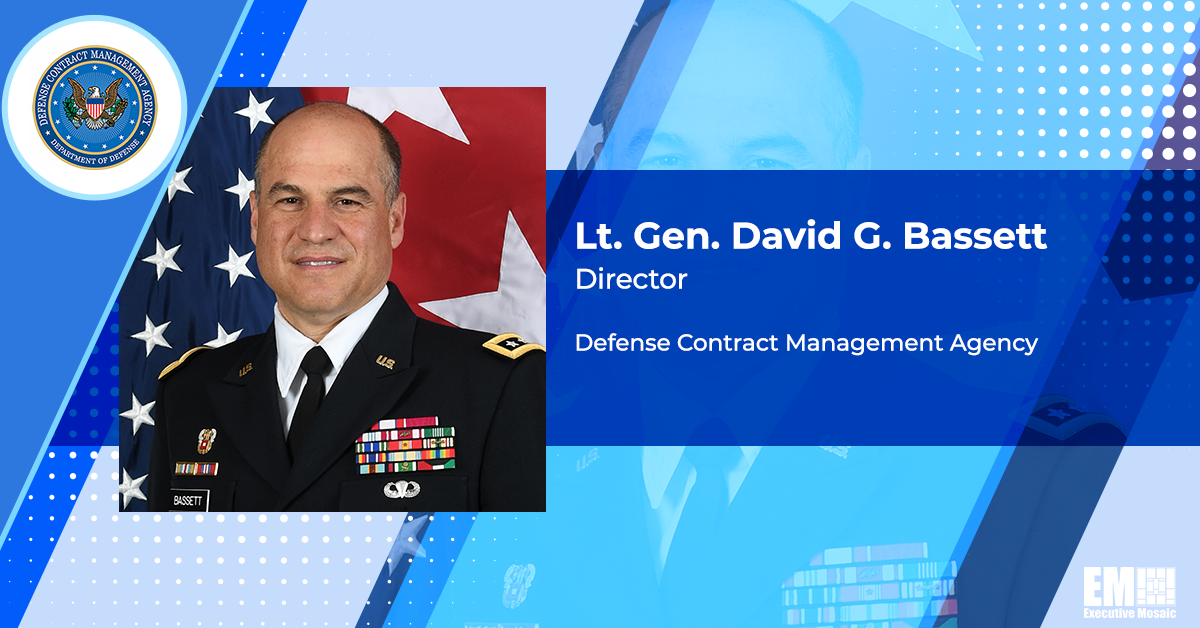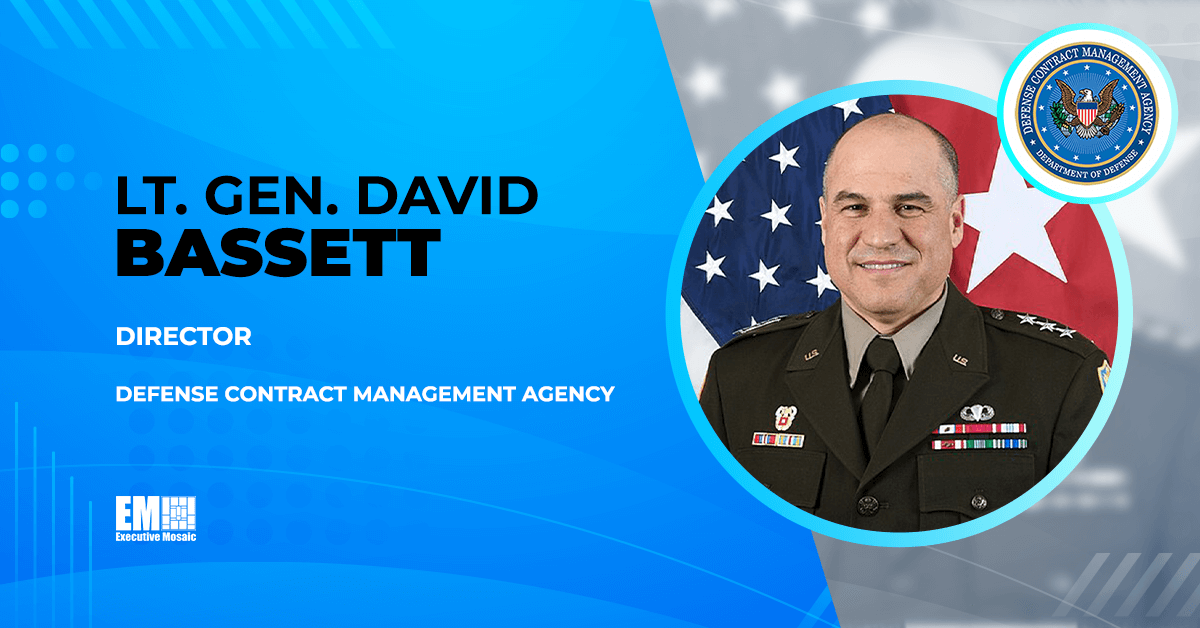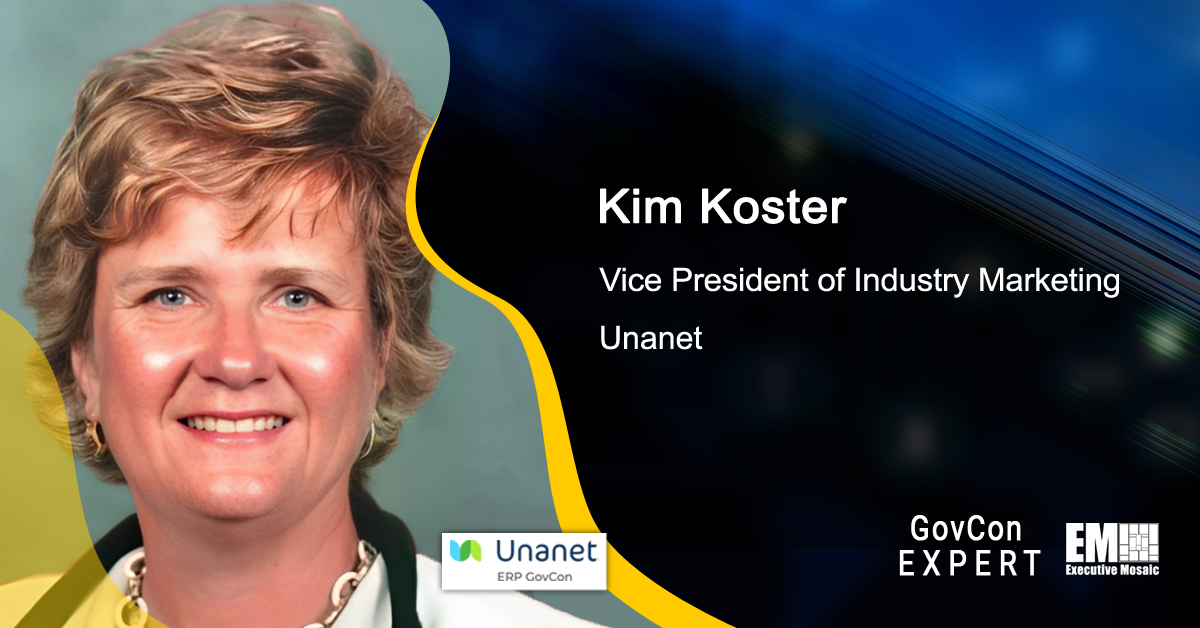Global supply chain issues have significantly impacted the government contracting ecosystem in recent years, calling attention to the need for speed in federal acquisition, procurement and manufacturing processes.
Kicking off GovCon Wire’s 3rd Annual Defense Digital Acquisition and Innovation Forum, Lt. Gen. David Bassett illustrated the current state of the global landscape and explained how major factors are impacting the GovCon ecosystem in particular.
“We arrive at today’s forum at I think one of the most challenging times that I can remember in recent history — with all the uncertainty around the conflict in Ukraine, the end (hopefully) of the COVID pandemic, nations dealing with climate change and the impacts that that’s having on both industrial capacity as well as finances around the globe,” said Bassett, director of the Defense Contract Management Agency.
Since February 2022, the Russia-Ukraine conflict has been a major focus for the Department of Defense, but Bassett asserts that the GovCon community is only just beginning to see the full impact of these high-priority efforts.
“The defense industrial base right now is only really on the front end of responding to the war in Ukraine,” he shared. “The immediate needs for that conflict have been met, largely through drawdown authorities. The next step here is going to be about replenishing and modernizing the legacy systems that have been pushed forward into Ukraine, as well as the increased demand from both the U.S. and our allies for key capabilities that have been identified out of Ukraine.”
The impending need for these key warfighter capabilities will be a huge area of “meaningful opportunity” for the on-ramping and application of new technologies, Lt. Gen. Bassett imparted to the forum’s industry attendees. But that opportunity can only be harnessed if action is taken to ensure that each vital component of the defense industrial base supply chain is resilient, reliable and agile enough to respond to emerging needs.
“If we’re serious about generating foreign military sales, equipping our allies, we probably need to think about getting the authorities in place and the resources so that we can manufacture in advance of need and have things ready and on the shelf,” Bassett warned.
“Otherwise, what slows us down may not be some bureaucratic acquisition process or even a cumbersome contracting process. It may be the challenges of manufacturing in a modern environment with modern complex designs,” he added.
These supply chain and manufacturing woes could be significantly eased from the adoption and implementation of new and emerging technologies like artificial intelligence, Bassett suggested. But advanced technologies can no longer be just talking points. Bassett urged members of the defense industrial base to shepherd these technologies from concept to capability much more quickly in order to derive the full benefits they promise to deliver.
“Whether you’re talking about digital engineering, artificial intelligence, machine learning or additive manufacturing, industry needs to not just describe those capabilities and technologies, but to demonstrate real improvements to warfighting capabilities as a result of their application,” the DCMA director stated.
“This can’t turn into buzzword bingo, we have to make it real. And making it real is more than just encouraging the application of this technology. It’s about applying it and showing real results — real results in quality, in schedule, in getting to mass manufacturing faster than we would have, and better than we would have without that capability,” Bassett continued.
The Department of Defense and the U.S. military have been increasingly focused on achieving “AI readiness” in recent years, especially as peer and near-peer competition in that arena escalates. However, AI proficiency and preparedness will not be as simple as “flipping a switch,” and Lt. Gen. Bassett predicted that the AI revolution “is going to happen gradually and profoundly, one use case at a time.”
In closing, Bassett left the virtual audience with two actions that organizations must take to be successful in the current volatile environment. First, he said companies must “focus on their supply chain and engagement with that supply chain.”
“It’s not enough to treat your supply chain strictly as a contracting process or mechanical process where parts are just going to show up on your line. That doesn’t happen without real intimacy with your supply chain,” Bassett mentioned, noting supply chain intimacy as a “key part” of accomplishing organizational missions.
The second action that indicates a company’s success is cultivating a “stable and trained workforce,” shared Bassett.
“If we’re not treating them well, if we’re not compensating them appropriately, if we’re not ensuring their training and giving them meaningful work, I think companies are going to struggle with the kind of turnover that they’ve faced over the last couple of years,” Bassett said, detailing the importance of focusing on workforce development. “That’s going to have to become stable for us to be great at manufacturing in the future.”

Learn more about the federal government is prioritizing widespread modernization and tech adoption during GovCon Wire’s Second Annual IT Modernization and Transformation Forum on Nov. 10. The U.S. Coast Guard’s Christopher Bartz is scheduled to keynote. Register here.







